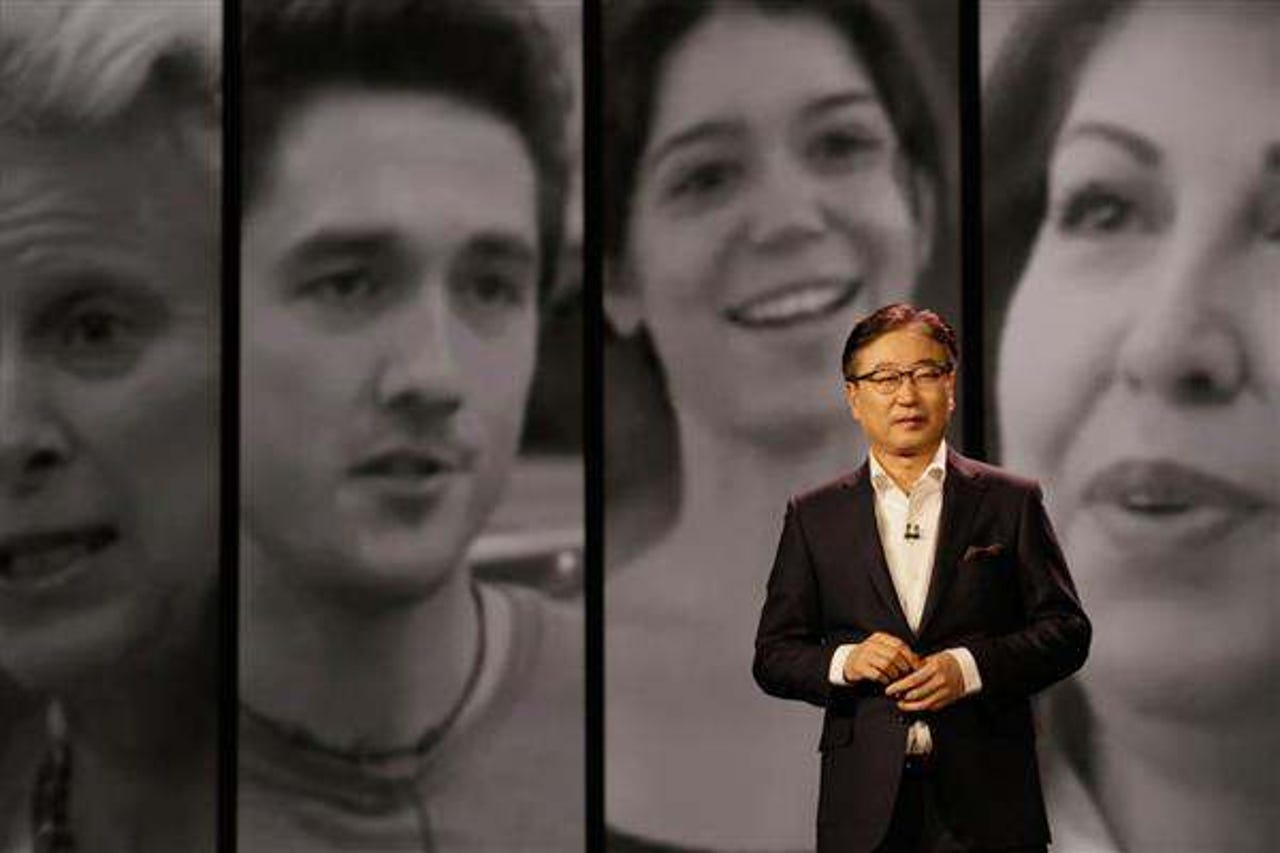Samsung at CES 2015: Internet-of-Things is not science fiction, but 'science fact'


LAS VEGAS--- Samsung spent the first half of the Monday unveiling a bevy of flashy high-end TVs and other home appliances.
But the real value - for Samsung and most other tech giants along all verticals these days - will be found in how those gadgets talk and share data with each other.
More CES 2016
The Korean tech titan plotted how those new Wi-Fi-enabled electronics and more figure into its wider Internet-of-Things agenda during one of the opening keynotes of the 2015 Consumer Electronics Show on Monday.
Boo-Keun Yoon, president and CEO of Samsung Electronics, recalled that he addressed the "mega trends" at the annual trade show last year, pegging the Internet-of-Things, or IoT for short, as the most pressing this year.
"It's 2015, and we're going back to the future," Yoon quipped to a few laughs from the crowd. "Remember Part II of the Back to the Future movies. Time travel is probably still a few years away. However, some of the futuristic technology in the movie is here already."
A few examples, according to Yoon, include multi-screen viewing and video conferencing.
"It's not science fiction anymore. It's science fact," Yoon insisted.
Yoon theorized consumer devices now have what it takes to make science fiction dreams real through the marriage of sensors and wireless connectivity, but also one more important ingredient: purpose. Part of the common rhetoric uttered at CES and even before the show by other Silicon Valley leaders have stressed that connected devices are really about people and solving problems.
"We have to show consumers what's in it for them and what IoT can achieve," Yoon asserted, continuing that IoT also has the potential to "transform our economy, society, and how we live our lives."
Jeremy Rifkin, president of the Foundation on Economic Trans, concurred on stage by suggesting each new era (or "societal revolution") requires new tech along three channels to establish "a seamless new infrastructure in how we organize our lives." Those channels are communications, energy, and transportation.
"In short, consumer electronics is morphing into prosumer electronics, giving everyone greater control over their daily lives and more choices in how we live our lives," Rifkin reflected.
Nevertheless, while these "economic opportunities brought on by prosumer electronics will transform our lives," Rifkin acknowledged they still come with unique challenges and risks, ranging from the reorganization of business models to meeting network traffic demands to the protection of personal data.
"Openness is at the heart of what has made the Internet a success," said Rifkin. "Ensuring everyone has access to the network and making sure no one is discriminated against is essential to protect universal inclusion."
For Samsung, Yoon acknowledged, the first step is getting the technology right. This means developing smart components, such as sensors, that demonstrate understanding and context.
Yoon boasted Samsung already has "a broad range" of IoT apps and devices that "unlock the value" of this movement, from lighting systems that automatically adjust themselves according to movie modes and apps that manage wine collections and locate bottles within vast cellars.
2015 is already poised to be a big year for Samsung's Internet-of-Things game plan. But by 2017, Yoon promised 90 percent of all Samsung products will be "IoT devices," including all televisions and mobile devices. Five years from now, every single piece of Samsung hardware will be IoT-ready.
But Yoon acknowledged Samsung can't encourage the IoT movement alone, joining the chorus professing support for open standards.
SmartThings, a maker of smartphone-operated home device controllers bought by Samsung last summer, figures into its parent company's open IoT approach by operating within Samsung's Open Innovation Center Group.
One of the initial fruits of the merger include the new SmartThings Hub, connecting sensors from devices on different platforms thanks to an open architecture. The Hub is even supposed to work in the case of home power outages.
To fuel IoT faster, Yoon added Samsung will also invest more than $100 million this year in the developer community through accelerator programs worldwide.
"It's obvious the Internet-of-Things will change much more than our industry," Yoon concluded. "That's because it will touch every aspect of our lives and revolutionize every industry."
Images via CNET